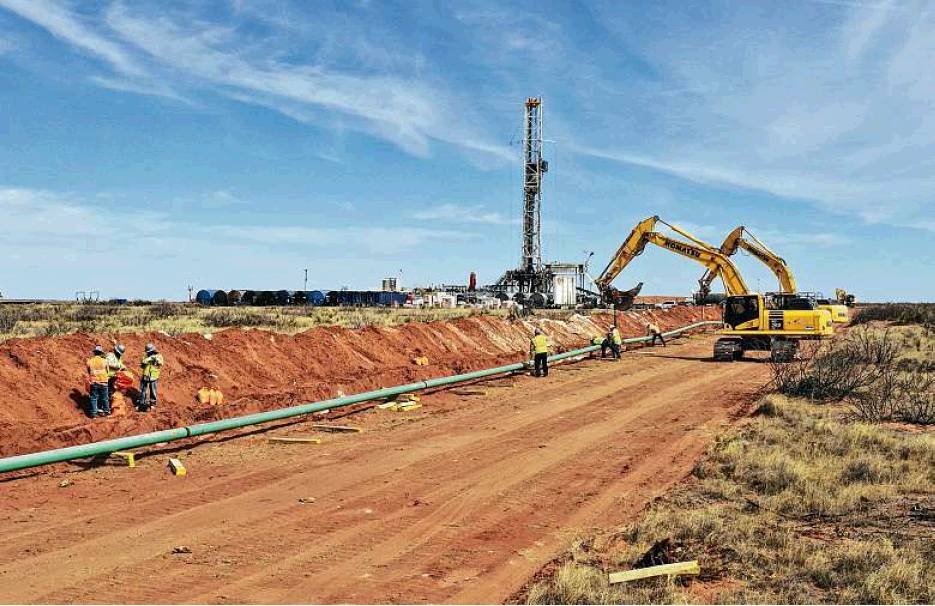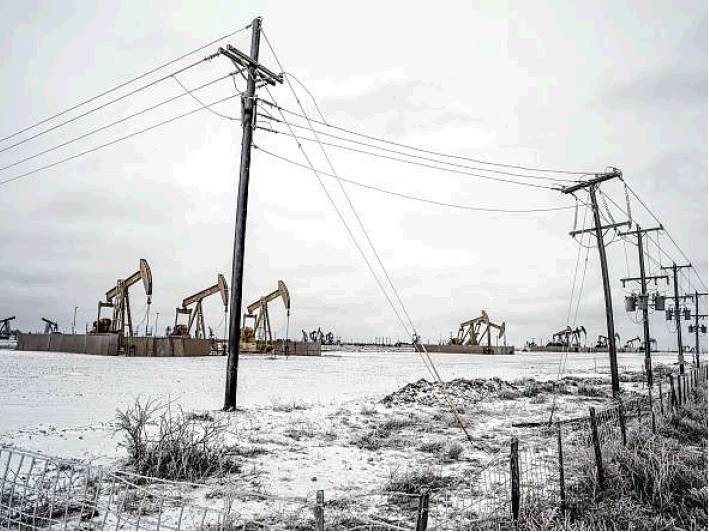Democrats pursue greater federal oversight on natural gas pipelines
GOP, industry leaders say extra agency not needed despite winter grid issues
By James Osborne STAFF WRITER
WASHINGTON — House Democrats are moving to create a new federal agency to enforce reliability standards on natural gas pipelines.
Under legislation discussed at a hearing Wednesday, Congress would create an Energy Product Reliability Organization, to set new standards to ensure a reliable supply of natural gas for the power grid and protect against cyber and physical attacks — similar to existing regulations on power lines.
“Despite our current dependence on these pipelines, there are no federal reliability standards, or any specific entity charged with ensuring delivery of natural gas, crude oil, or other products on energy pipelines,” Frank Pallone, D-N.J., chairman of the House Energy and Commerce Hearing, wrote in a memo ahead of the hearing. “Instead, energy pipelines and natural gas infrastructure are primarily subject to voluntary reliability and cybersecurity measures that have proven inadequate to safeguard reliability and security.”
The legislation follows ongoing questions about the reliability of the U.S. natural gas system, following a frigid winter storm last year that knocked out gas production and pipelines in Texas. That left many power plants short on fuel, contributing to widespread blackouts that left millions of Texans without power and heat for days.
In a report following the storm, the Federal Energy Regulatory Commission and the North American Electric Reliability Corporation found that “generating unit outages and natural gas fuel supply and delivery were inextricably linked,” and recommended new measures by FERC and state energy agencies to protect the natural gas system.
In addition, hackers infiltrated the more than 5,000 mile-long Colonial Pipeline last year, causing fuel shortages up and down the East Coast.
But at Wednesday’s hearing, Republicans expressed concern that creating new oversight authority will only increase energy costs when families are already paying more to fuel their vehicles and heat their homes.
“Energy prices are soaring,” said Rep. Fred Upton, R-Mich. “The topic of this hearing is totally off base. This bill is a sweeping power grab preempting states authority ... and turning FERC into a public behemoth.”
The oil and natural gas industry is also opposing the legislation. Texas companies maintain they are already making improvements to prevent a repeat of last year’s events.
In a joint statement Wednesday, groups including the American Petroleum Institute and the Interstate Natural Gas Association of America argued the sector had, “performed resiliently and enabled energy reliability during numerous extreme weather events.”
“We remain concerned that any proposal designed to create a new, additional pipeline reliability regulator will not effectively promote pipeline reliability, given that it will create duplicative and conflicting authority with existing federal and state agency regulatory programs,” they wrote.
State regulators are also pushing back. The National Association of Regulatory Utility Commissioners, which represents Texas Public Utility Commissioners, argued the “undefined broad authorities granted by this legislation are a recipe for needless litigation at taxpayer expense.”
The concern among Democrats, including top officials within the Biden administration, is that without mandatory regulations like those imposed on the power sector, some gas and pipeline companies will avoid taking necessary precautions in order to increase profits.
Following a winter storm in 2011 that knocked out power in Texas and other Southern states, FERC made a series of recommendations for states to improve winter reliability. But in Texas, little action was taken by the state Legislature, resulting in many energy firms opting not to follow FERC’’s guidance.
“It’s a good example where mandatory standards are absolutely necessary,” FERC Chairman Richard Glick testified at Wednesday’s hearing. “If we had done it in 2011, we probably wouldn’t have had the disaster that occurred last February in Texas.” james.osborne@chron.com twitter.com/osborneja

